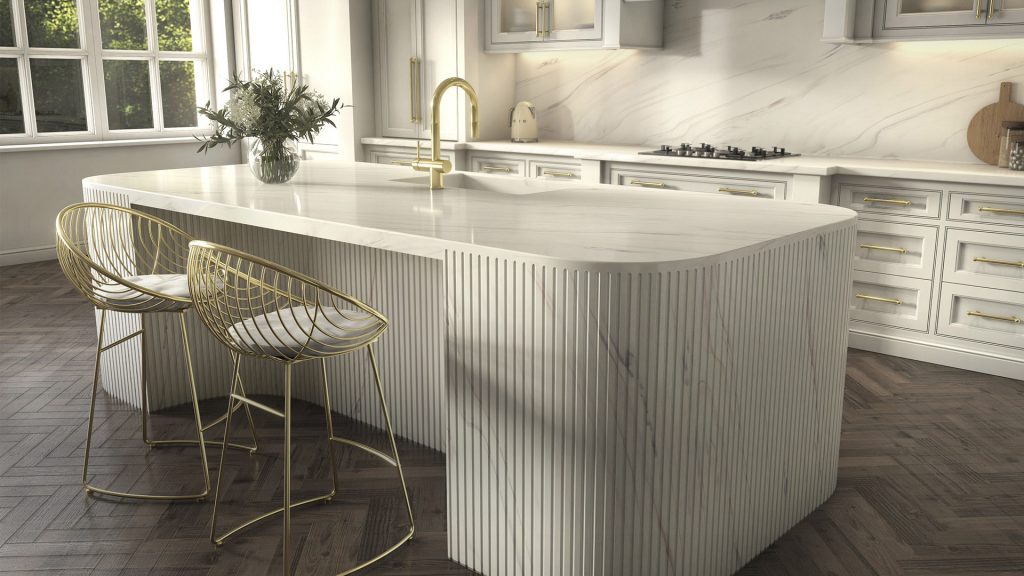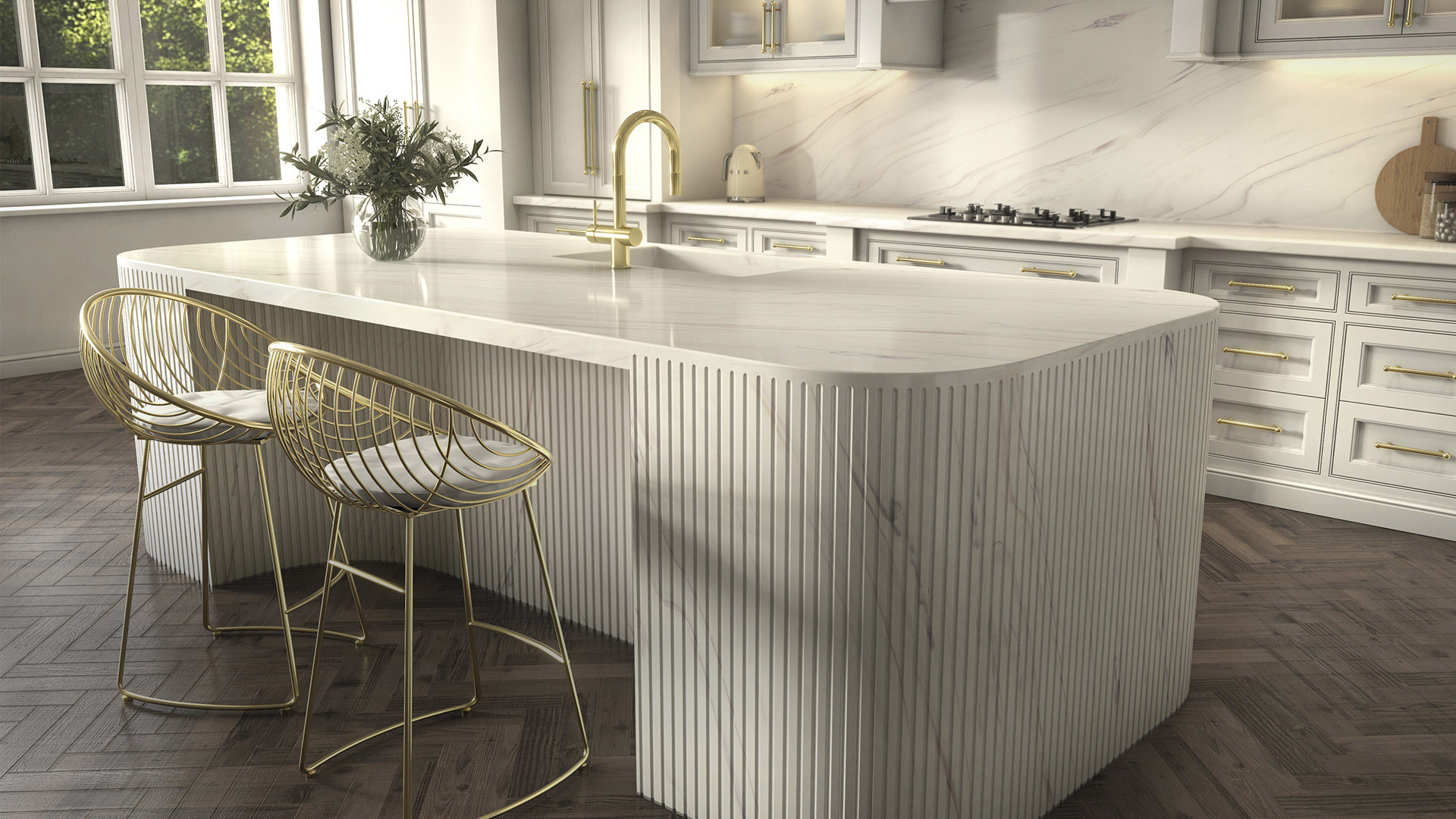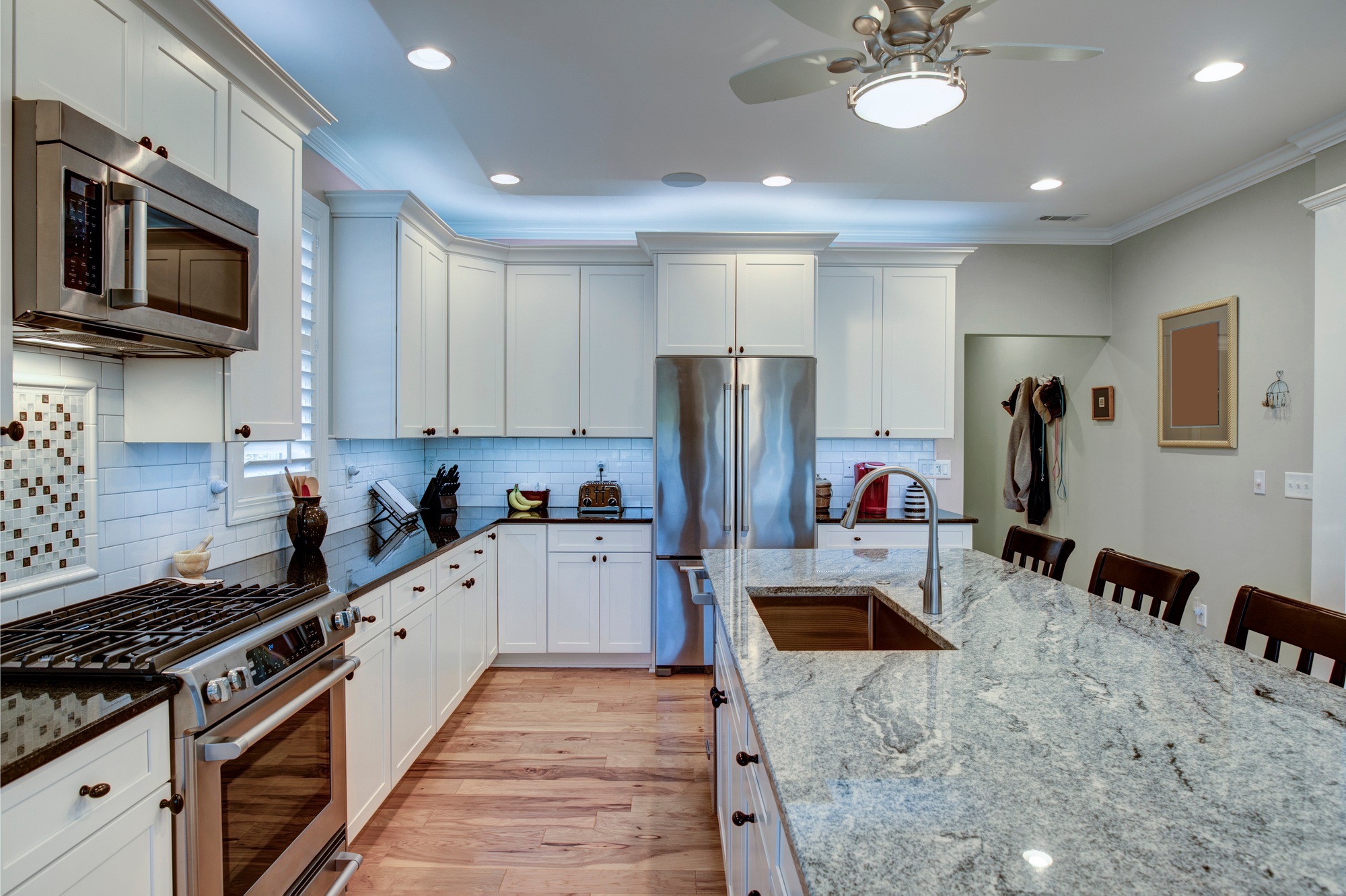Choosing the right countertop material is one of the most important decisions in any kitchen remodel. It affects not only the look and feel of your space but also its durability, maintenance, and long-term value. Two popular options—Corian® and Quartz—offer distinct advantages, and understanding their differences can help you make the best choice for your lifestyle and design goals.
At Blasius Inc, we specialize in both materials and work with homeowners across Michigan, Indiana, and Ohio to find the perfect fit. Let’s break down how Corian and Quartz compare across key categories.
Material Composition & Appearance
Corian® is a solid surface material made from a blend of acrylic polymers and natural minerals. It’s non-porous, seamless, and available in a wide range of colors and patterns—including options that mimic stone, concrete, and even wood grain. Corian is known for its smooth, matte finish and integrated design flexibility, including custom sinks and backsplashes.
Quartz, on the other hand, is an engineered stone made from natural quartz crystals combined with resins and pigments. It offers the look of natural stone with enhanced durability and consistency. Quartz countertops often feature dramatic veining, glossy finishes, and a wide range of color tones—from crisp whites to bold blacks and earthy neutrals.
Design Tip: If you’re aiming for a sleek, contemporary kitchen with seamless surfaces, Corian may be ideal. For a more luxurious, stone-inspired aesthetic, Quartz delivers visual impact.
Durability & Performance
Both materials are built to last, but they perform differently under pressure.
- Corian is resistant to stains, moisture, and bacteria. It’s repairable—scratches and minor damage can often be buffed out or sanded down. However, it’s more susceptible to heat damage and may not be ideal near cooktops or hot pans without protection.
- Quartz is extremely hard and scratch-resistant. It handles daily wear and tear with ease and is more heat-tolerant than Corian, though it’s still recommended to use trivets or hot pads. Quartz is also non-porous and doesn’t require sealing.
Verdict: Quartz wins on hardness and heat resistance, while Corian offers repairability and seamless integration.
Maintenance & Cleaning
Both Corian and Quartz are low-maintenance compared to natural stone.
- Corian can be cleaned with mild soap and water. Its non-porous surface resists mold and mildew, making it a great choice for hygienic environments.
- Quartz also cleans easily with soap and water or gentle household cleaners. It resists staining from coffee, wine, and oils, and doesn’t require sealing like granite or marble.
Pro Tip: Avoid abrasive cleaners or scouring pads on either surface to maintain their finish.
Cost Considerations
Pricing varies based on color, finish, edge profile, and installation complexity.
- Corian tends to be more budget-friendly, especially for large installations or integrated designs. It’s a great option for homeowners looking for value and flexibility.
- Quartz is typically more expensive due to its stone-like appearance and superior durability. Premium brands like Cambria® offer exclusive designs and finishes that elevate the cost—but also the resale value.
ROI Insight: Quartz may offer stronger resale appeal due to its luxury perception, but Corian delivers excellent value for mid-range remodels.
Best Applications by Kitchen Type
- Corian is ideal for:
- Contemporary or minimalist kitchens
- Integrated sinks and backsplashes
- Smaller spaces where seamless design matters
- Budget-conscious remodels
- Quartz is ideal for:
- High-traffic family kitchens
- Statement islands and waterfall edges
- Homes with resale in mind
- Designs that mimic marble or granite
Sustainability & Health
Both materials offer eco-conscious benefits.
- Corian is GREENGUARD Certified for indoor air quality and can be fabricated with minimal waste.
- Quartz brands like Cambria® use responsibly mined quartz and sustainable manufacturing practices.
If low-VOC materials and environmental impact are priorities, both options can meet your standards—just be sure to ask your fabricator about specific certifications.
Final Thoughts: Which One Fits Your Kitchen?
Choosing between Corian and Quartz depends on your kitchen’s needs, your design preferences, and your budget. If you value seamless integration, soft matte finishes, and repairability, Corian is a smart choice. If you’re drawn to bold veining, stone-like durability, and long-term resale value, Quartz may be the better fit.




